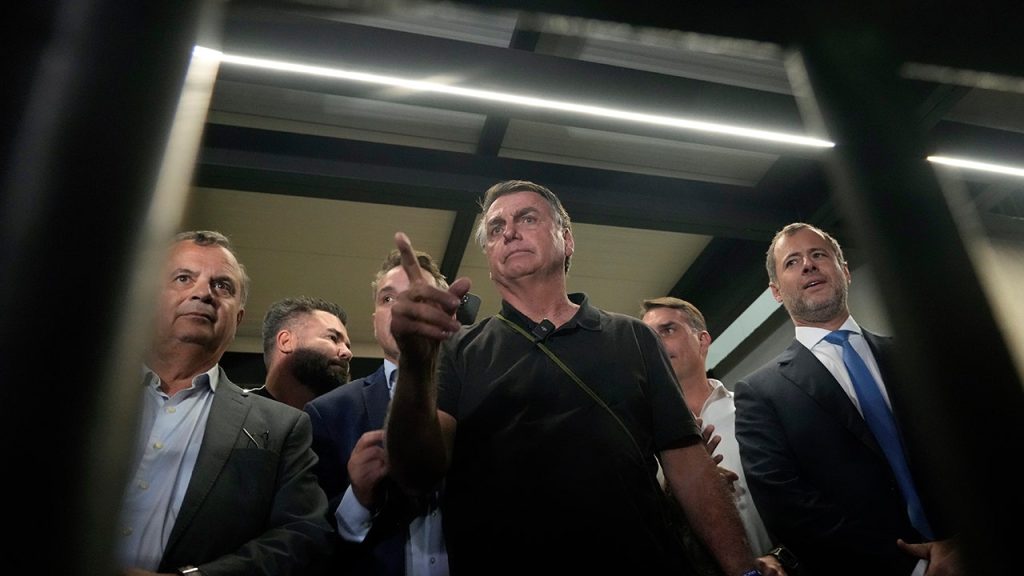In late November 2023, Brazil’s Federal Police officially accused former President Jair Bolsonaro and 36 associates of orchestrating a coup to maintain his presidency. This serious allegation emerged from an extensive 884-page police report that outlined a strategic plan involving the manipulation of the electoral system, the drafting of a deceptive legal decree, and the incitement of public unrest. The investigation details a systematic campaign to instill mistrust in Brazil’s voting system, leveraging social media and pro-Bolsonaro influencers to spread misinformation that purported vulnerabilities existed within the electronic voting framework. As Bolsonaro prepared for his 2022 re-election bid, he openly expressed admiration for Brazil’s past military dictatorship, rallying conservative support and claiming an imminent threat of electoral fraud.
With the investigation moving forward, Brazil’s Prosecutor-General Paulo Gonet is tasked with determining the next steps, whether to formally prosecute those implicated, dismiss the case, or seek additional testimonies to clarify each individual’s role. Bolsonaro and his allies vigorously deny any allegations, framing the investigation as a politically motivated attack against him. Notably, the police report showcases the organized efforts to delegitimize the electoral process, which included a televised presentation by Bolsonaro to diplomats, warning them of supposed vulnerabilities in the voting system. Following his loss to Luiz Inácio Lula da Silva, Bolsonaro’s political allies challenged the election’s validity, which the electoral court ultimately dismissed, further evidencing the alleged coup’s premeditated attempt to sow unrest.
Integral to the alleged conspiracy was the drafting of a decree aimed at suspending the legitimacy of the electoral court and establishing authoritarian control post-election. Police uncovered this draft decree at the home of Bolsonaro’s former justice minister, Anderson Torres, indicating that the plot was both formulated and discussed among high-ranking military officials, albeit meeting with mixed responses from military leaders, which obstructed its execution. The investigation’s findings suggest that the intention behind the decree was to facilitate a politically charged inquiry into election fraud, thereby creating a narrative that could influence electoral outcomes and maintain Bolsonaro’s power.
In an additional alarming revelation, Brazilian authorities arrested four army special operations officers linked to a separate plot to assassinate President-elect Lula, Vice President-elect Geraldo Alckmin, and Supreme Court Justice Alexandre de Moraes. The arrest signalized an explicit crossover from political machinations into violent conspiracies aimed at preserving Bolsonaro’s administration. Gen. Walter Braga Netto, Bolsonaro’s former running mate, was implicated as a ringleader in this assassination plan, further compounding the list of allegations against high-profile officials. While there is no concrete evidence that the assassination plan was put into action, the discovery of communications and operational groundwork suggests a significant level of intent among conspirators.
Another focal point in the investigation was the January 8, 2023, uprising, where Bolsonaro’s supporters launched a violent assault on Brazil’s governmental institutions, demanding military intervention to overturn Lula’s presidency. This uprising closely followed Lula’s inauguration and is viewed by authorities as critical evidence of an organized coup effort spearheaded by Bolsonaro’s inner circle. The police report indicates connections between individuals involved in the riot and prior planning conducted by Bolsonaro supporters, although the precise nature of coordination and direct involvement remains a contentious legal question. Critics argue that the evidence linking the riot to a broader coup initiative is tenuous at best, requiring more substantial factual backing.
As the investigation unfolds, Bolsonaro has attempted to distance himself from the charges, arguing that discussions regarding emergency measures constituted lawful governmental considerations rather than conspiratorial plotting. He has maintained that his actions were meant to ensure public safety and uphold constitutional mandates rather than enact a coup. However, the pressure mounts for both him and his co-accused as the allegations linger amidst Brazil’s political tumult, and the potential consequences could alter the landscape of Brazilian politics for years to come. The Prosecutor-General’s forthcoming decision stands to significantly influence both Bolsonaro’s political future and the integrity of Brazil’s democratic institutions.

